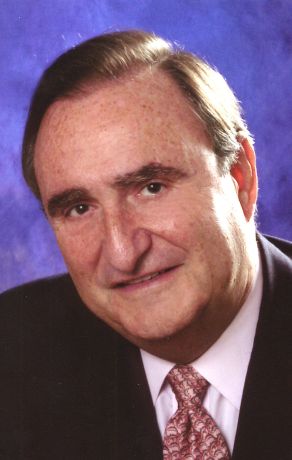As we approach the November presidential election here are some names and words to remember.
The names are Barry Goldwater and Jesse Jackson. The words are “down ballot.” The current race to the White House made those names and words pop into my mind.
It is not a secret that the Republican establishment has taken a long time to get over the candidacy of the late Sen. Barry Goldwater of Arizona.
In the 1964 election, Barry Goldwater, an arch conservative, was the Republican candidate for president and his opponent was Lyndon B. Johnson.
Goldwater, very much like today’s candidate Donald Trump, was unpredictable and unwilling to accept advice from anyone.
In the old days, there was no cable television and Facebook to spread the news, but the press did as much as possible to let the world know what the candidate stood for.
Because Goldwater’s positions were so controversial and against party philosophy, whatever news he made was bad for the party.
In 1964, the late Joseph F. Carlino was both the speaker of the New York State Assembly and Nassau County Republican leader. He was considered one of the all-powerful politicians in the state and had been easily re-elected six times. Caught between party discipline and his leadership position, Carlino was forced to endorse Goldwater and take his chances.
No one believed that the Goldwater endorsement would do him any harm but on Election Day it was another story.
Carlino lost his Republican Assembly District by more than 20,000 votes.
While Carlino had accumulated many enemies, his real problem was the distaste of the voters for Goldwater. That year hundreds of other Republicans lost their re-election bids.
The Goldwater dilemma is being repeated now for dozens and dozens of Republican candidates running for re-election.
Despite the large number of voters who will embrace Trump, there many solid party voters who want no part of a Trump in the White House.
If they choose to stay home, as many of them will, candidates that are lower on the ballot will be the ones to suffer. That’s what we call the down ballot dilemma.
The Trump message may be appealing to many non-traditional voters, but there is a massive number of Republicans who may decide to punish their elected official for supporting Trump. That is what happened in the Goldwater days and that’s what House Speaker Paul Ryan is afraid of.
Ryan has a comfortable margin in his house but the Senate has 12 vulnerable members, four of whom run in states that President Obama won. So that’s the down ballot concern.
On the Democratic side of the campaign, the candidacy of Bernie Sanders is very much like the 1988 campaign of Rev. Jesse Jackson.
Jackson had a populist message that attracted a lot of attention and worry for the Democratic Party establishment.
Jackson didn’t give up his campaigning until days before the party convention. He made numerous demands on what should be in the party platform and got the convention to set aside a Jesse Jackson night honoring him for his accomplishments.
There is no doubt that the Democratic Party will have to keep the Sanders voters in their camp and there will be a price for that support. Sanders has earned the recognition but he can’t hurt the party just to keep his ego in check.
The last question nagging at the Democrats is whether Sanders will continue to attack Hillary Clinton right through the California primary in June.
Wiser heads have told him that he shouldn’t be helping Trump by continuously attacking Clinton.
If Sanders follows the Jesse Jackson history it will not help the Democrats in November.
However, considering that Sanders is not a Democrat, I have no illusions that he will gently become a Clinton supporter.

